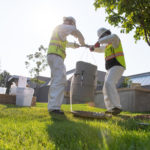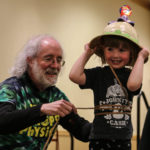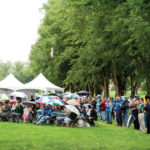
Tai Chi is a Chinese martial art meant to combine the practice of defense and the bene ts of health and meditation. Recent and relevant research has looked at the bene ts of Tai Chi
for aging individuals (hint: that is actually all of us!) in particular. This form of exercise is meant to provide a gentle approach, yet still positively bene ts strength, exibility, and balance. Not to mention, something that has the potential to be a life long practice. Let’s look at some of the bene ts of Tai Chi.
• Meditation: Many think of meditation as a quiet, eyes-closed, sitting still practice, but
tai chi has been described as “meditation in motion.” Providing many of the same bene ts of mediation like reducing stress, increasing self- awareness, focusing on the present, and more, all promoting positive emotional and physical health. The slow-motion and low-impact movements of the exercises have you move through a series while practicing deep breathing and focusing your attention. The series of exercises, often named after animal actions,
are meant to be done in a circular pattern never forcing the movement. This allows muscles to stay relaxed, and to work through joint range of motion slowly and carefully.
• Muscle Strength: Although the practice doesn’t often include weights, or additional equipment, tai chi strengthens upper body, lower body, and core. With the unsupported raised arms and motion of exercises, upper body strength is challenged. The stance positions and support from the lower body enhances lower extremity strength. The engagement of the core to support stances and slow changes in movement challenge and enhance abdominal strength.
• Flexibility: Due to the circular pattern of exercises and working joints through a comfortable range of motion at a slow pace tai chi promotes flexibility throughout the body. Another great bene t to tai chi is how the practice can be adapted for almost anyone from those with mobility limitations to highly t individuals.
• Balance: Improvements and positive changes to balance often lead to a decreased risk of falls and fear of falling. Reducing falls, also helps to prevent minor and major injuries that are common among older adults as a result of falls. Tai chi can help in the body’s ability to sense and understand its position in space. This proprioceptive ability naturally decreases with age, and can lead to decreases in strength, reaction time, and more. Being able to enhance it can be seen as a powerful tool. In tai chi studies researchers have found that tai chi reduces both fall risk and fear of falling.
Whether you’re new to exercise, or a life-long participant, and regardless of age tai chi may be a great addition to your physical activity habits!
Kimberly Burke is the director of the Adult Fitness Program at Colorado State University, an outreach program through the Department of Health and Exercise Science. Adult Fitness o ers exercise opportunities for employees of CSU as well as community members, while providing hands-on learning experiences for health promotion students. To learn more see the Adult Fitness Program website.


































































































